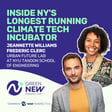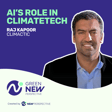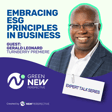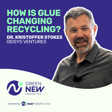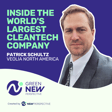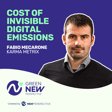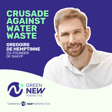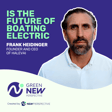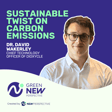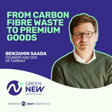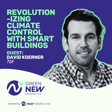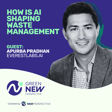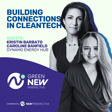
Reusable PPE? It's Happening Now: Podcast With AmorSui
In this episode of the Green New Perspective podcast, we're focusing on medical waste—a major contributor to environmental pollution.
Joining us is Beau Wangtrakuldee, the co-founder and CEO of AmorSui, a New York-based climate tech company that's revolutionizing the healthcare industry. Beau's journey, from a PhD scientist to a sustainability advocate, began after a chemical spill incident revealed the inadequacies of existing personal protective equipment (PPE).
We'll hear how AmorSui's innovative circular solutions for medical supplies and PPE are not only improving safety and quality but also making the healthcare industry more sustainable.
Guest: Beau Wangtrakuldee, Ph.D., Founder & CEO at AmorSui
📚 Resources:
━━━━━━━━━━━━━━
- Website: https://amorsui.com/
- LinkedIn: https://www.linkedin.com/company/amorsui
- Instagram: https://www.instagram.com/amorsuiclothing
🎧 Subscribe to our podcast:
━━━━━━━━━━━━━
- Spotify: https://bit.ly/3PSWIyI
- Apple Podcasts: https://bit.ly/3RvlHte
- Youtube: https://bit.ly/3RDzkXg
- Deezer: https://bit.ly/3PvQaof
- Amazon Music: https://bit.ly/3PQlijS
- Zencastr: https://bit.ly/48xt75s
💬 Follow GNP podcast on social media:
━━━━━━━━━━━━━
- Instagram: https://www.instagram.com/greennewperspective/
- LinkedIn: https://www.linkedin.com/company/new-perspective-marketing/
- Facebook: https://www.facebook.com/greennewperspective
- TikTok: https://www.tiktok.com/@greennewperspective
🌍 Cleantech podcast created by New Perspective Marketing
━━━━━━━━━━━━━━━━━━━━━━━━━━━
This podcast is proudly sponsored by New Perspective Marketing, a dynamic growth marketing agency in Boston, MA, celebrating 20 years in business. We help sustainably focused B2B organizations grow their brands and scale up revenue. If you or your organization is looking to grow, visit https://www.npws.com for more info.
💚 GNP Team:
━━━━━━
- Host & Co-Producer: Dunja Jovanovic
- Executive Producer: Marko Bodiroza
- Creator: Nathan Harris
- Video Editor & Content: Marija Davidoski
#Sustainability #CleantechPodcast #GreenBusiness #EnvironmentalImpact #SustainableSolutions #VeoliaNorthAmerica #EnergyManagement #WaterManagement #WasteManagement

